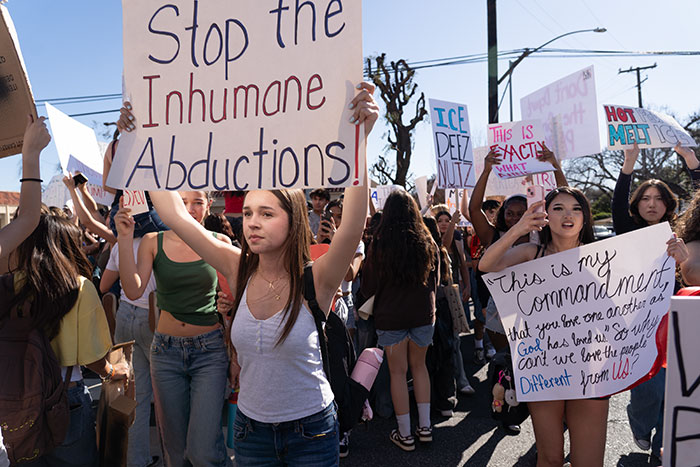Council approves CBO grants, retrofits streetlights
The city council approved funding for community-based organizations (CBO) and moved forward with streetlight purchases during Tuesday night’s meeting.
The CBO presentation by Human Services Director Anne Turner outlined a number of programs that will receive funding by the city. Twenty agencies applied for grant in the past year, with a grand total of grant applications totaling $169,280.
Unfortunately, the city has only allocated $86,650 in available funds for general services and $60,000 for homeless services.
“The city gets more applications than funding available, and this is certainly true this year,” Ms. Turner said.
The CBO program was established in 1989 to provide funding for nonprofits in need, Ms. Turner said. The current budgeting amount for general services has been in place since 2004, while the budgeting amount for homeless services has remained in place since 2008.
The groups that made the cut, as chosen by the Community and Human Services Commission, include a broad spectrum of programs in the city, including Ability First, which received $2,000 in grant money; Claremont Heritage received $1,500; and Youtherapy Psychological Services received $25,000 for their counseling services and parent support program for underserved families in the Claremont Unified School District.
Homeless services that made the cut include the Claremont Homeless Advocacy Program (CHAP), which received $7,200 in funding; Inland Valley Hope Partners, receiving $32,900 for their Family Stabilization and Homeless Assistance Programs and $3,000 for Our House Shelter, which serves as a residential family emergency housing program.
One aspect of the CBO funding process is the allocation of 20 percent of grant funding for “new and emerging programs,” which reflect newly-identified needs or an increase in an existing need, Ms. Turner said.
Programs that will benefit from that funding will be the new Claremont Museum of Art for their Project ARTstART Program ($3,100), Claremont Community School of Music’s “I Love Chorus” program ($1,200), The Summer Music Theater Program for the Inland Valley Reparatory Theater ($1,150), Sustainable Claremont’s Planting With Purpose Claremont Urban Forest Program ($2,000) in general services, and Pacific Lifeline’s Women’s Program ($7,300) for homeless services.
Ms. Turner noted that all the programs that applied for funding under the new and emerging program category were able to receive funding.
Councilmember Sam Pedroza thanked the commission for their work, and noted that the CBO program is, “one of those reasons why this city stands out from the others.”
“It’s a very rare thing that cities do this type of effort,” he said. “It really is a safety net that we’re able to help so many different organizations throughout the city.”
Councilmember Corey Calaycay abstained on voting on one program that is set to receive funding, Fairplex’s Big Yellow Bus Program, as he is also a part-time employee of Fairplex.
Other than that, the program passed unanimously.
The city also approved the purchase and retrofit of hundreds of streetlights peppered throughout Claremont. The purchase is phase II of a city plan to convert all streetlights in the city to energy-efficient LED bulbs, according to Principal Planner Chris Veirs.
The lights being purchased are classified as LS-1, which have the highest monthly tariffs for lights in the city. The sale of these poles were approved by the Public Utilities Commission (PUC) in 2012 but stopped in 2016. According to Mr. Veirs, Claremont slipped in just under the deadline.
Phase I was initiated in March 2016, when the city council approved converting city-owned streetlights to LED bulbs. This time around, the city would purchase 980 streetlights that are owned by Southern California Edison and entering into an agreement with Tanko Lighting, Inc. to complete the conversion.
The total cost of the project would be around $855,000 total, including $345,000 for the street light purchase and $465,000 for retrofitting and turn-key management by Tanko, plus a $45,000 contingency to cover any extra costs during the process, according to the city.
That price may seem steep, but Mr. Veirs noted the city would be saving around $1,637,000 over the next 15 years in electricity bills. The new bulbs would also cut energy use in the city by roughly 60 percent, which would save around 390,000 kilowatt-hours and would allow the city to meet its sustainability target of 20 percent energy reduction.
In addition, the city will pay for the cost through Tanko’s Municipal Lease Financing Loan, which the city states will have a nine-year term with a 3.2 percent interest rate. The city will pay about $90,000 annually toward the loan, but they note the savings generated through the streetlight conversion will offset the cost.
Streetlights are considered utility assets beholden to PUC regulations, so they must be sold, Mr. Veirs said. “It just can’t be given away,” he added.
The total number of streetlights in the city owned by Edison is 1,280. The 300 lights that were not sellable, according to Mr. Veirs, were attached to existing power lines and poles and not standalone streetlights.
Mr. Veirs and Tanko representative Alex Wurzel told the council that Edison could be convinced to convert the unsellable streetlights themselves. This prompted Councilmember Opanyi Nasiali to ask why the city couldn’t just use that method to convert all the Edison-owned lights in the city without having to buy them.
“Why couldn’t we just deal with them on making the changes without buying the poles?” he asked.
Mr. Veirs and Mr. Wurzel noted that the tariffs set on each street light would be lower if they city bought it—$12 a month per light to $4 a month per light—and the savings over time would be much larger for the city.
In his remarks, Mr. Nasiali took the PUC to task over the quality of the streetlights being purchased. He noted that some of the lamps have been around since 1959, and a number of them are depreciated to the point that they have daily problems.
“So when I see that we are going to pay $345,000 for this, it makes me ache with pain,” Mr. Nasiali said, although, in the end, he approved the street light purchases.
Mr. Pedroza agreed with Mr. Nasiali’s sentiment, but noted that Claremont is “playing the game” for an opportunity to convert the streetlights to local assets, meet sustainability goals and save money.
“The payback says it all for this decision on my part,” he said.
The motion passed unanimously. The next city council meeting will take place on May 9.
—Matthew Bramlett
news@claremont-courier.com








0 Comments